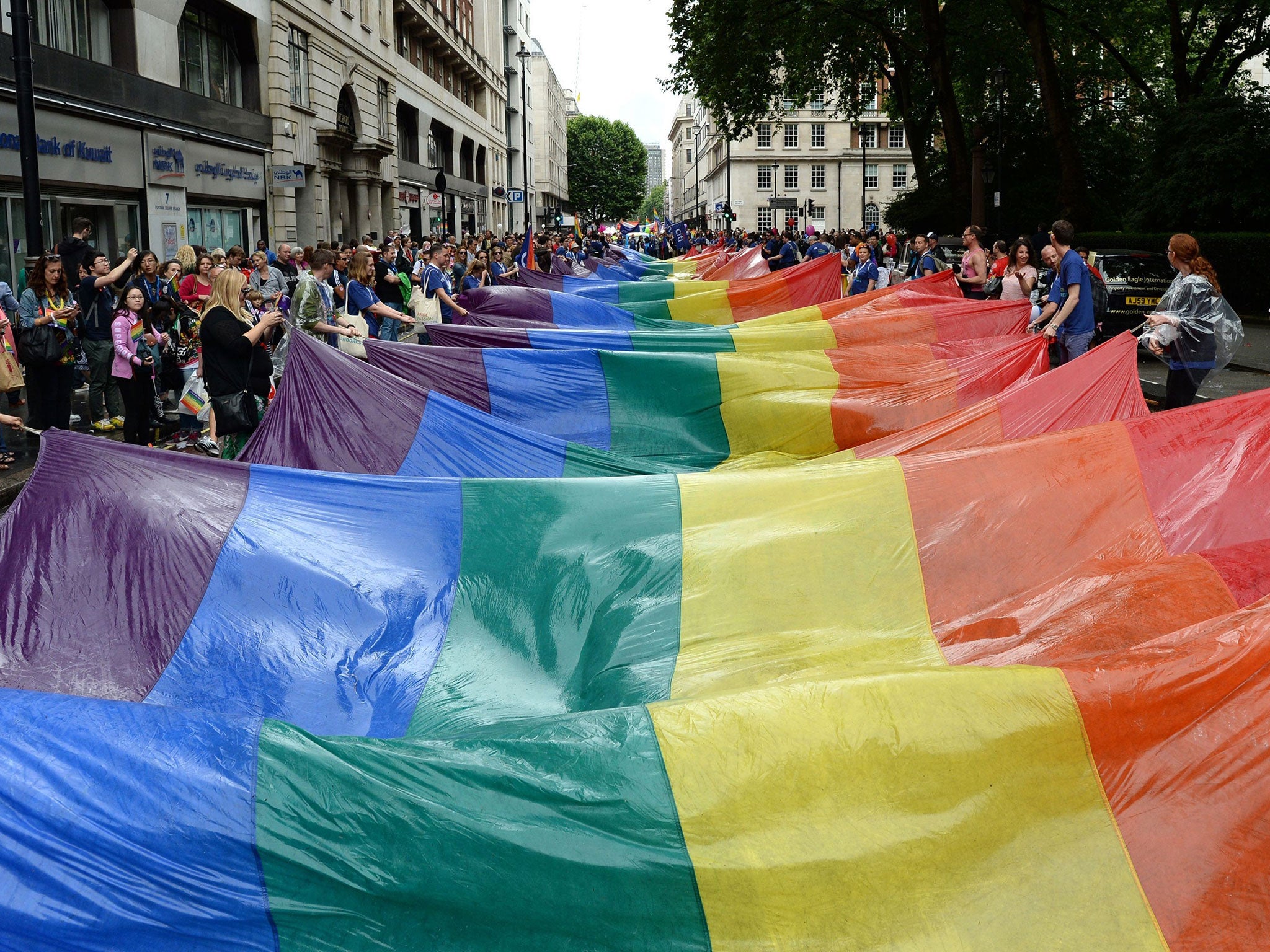Let's stop LGBT people 'coming out of the closet'
It fails as an analogy, and in the march towards equal rights it's time to take an axe to this anachronistic mausoleum

Your support helps us to tell the story
From reproductive rights to climate change to Big Tech, The Independent is on the ground when the story is developing. Whether it's investigating the financials of Elon Musk's pro-Trump PAC or producing our latest documentary, 'The A Word', which shines a light on the American women fighting for reproductive rights, we know how important it is to parse out the facts from the messaging.
At such a critical moment in US history, we need reporters on the ground. Your donation allows us to keep sending journalists to speak to both sides of the story.
The Independent is trusted by Americans across the entire political spectrum. And unlike many other quality news outlets, we choose not to lock Americans out of our reporting and analysis with paywalls. We believe quality journalism should be available to everyone, paid for by those who can afford it.
Your support makes all the difference.Things that belong in a closet: guest towels and spare bed sheets. Things that don't: lesbian, gay, bi, and transgender people.
After self-acceptance comes the closet - a source of tremendous inner turmoil that LGBT individuals have to overcome. But in many ways the community as a whole is still trying to escape it. Pedalled by political agendas, religious fundamentalists and endemic ignorance, a sordid, sexualised fallacy still lingers - and the closet is at its epicentre. In the sluggish march towards equal rights the time is right to take an axe to this anachronistic mausoleum, make a wicker-man from its splintered remains and emancipate the LGBT community from its claustrophobic reductionism.
‘Coming out’ derives from the debutante balls of young aristocratic women in the early 20th century, where upon reaching the age of maturity they were formally presented to society. The LGBT equivalent, according to historian George Chauncey, was the welcoming of ‘newly-outs’ into the social gay collective. The emphasis though was on stepping into a new world, not leaving an old one behind.
Decades later and the meaning is heavily distorted, embroiled in the idiom ‘skeleton in the closet’. The connotation: sexuality is akin to a rotting cadaver, tucked away out of sight for fear of judgement and retribution, a source of contempt, disgrace and abnormality.
The modern euphemism, ‘coming out the closet’, emphasises the notion that embracing homosexuality entails a lifestyle of seedy activity, exacerbated by the HIV epidemic, prevailing stereotypes and fundamentalist rhetoric.
It fails as an analogy too. Literally stepping out of a closet involves one swift, decisive action - in then out. But coming out is a lifelong process. Even for those who identify as “fully out”, the assumption of heterosexuality can hurl them back into the dark confides of ‘closetdom’.
The closet’s simplicity creates the illusion of choice. Emphasising a binary closet - in then out - suggests that repression and the retention of a heterosexual façade is both feasible and acceptable. Ian Thorpe’s interview with Michael Parkinson serves as a reminder of the mentally crippling effects of concealment, “living a lie” and pandering to social expectations.
Sexuality is not a choice. There’s no opt in or out, you just are. Coming out should be presented for what it is: an inevitable, natural process. As long as the illusion of the closet exists, so too will a lingering reluctance for many LGBT individuals to address their sexuality.
Perpetuating myths and stigmas is the staple diet of those who seek to debase sexual minorities, especially in countries which criminalise sexual minorities. Putin regularly pairs it with paedophilia, openly telling LGBT tourists to “leave the children alone” prior to the Winter Olympics.
Though UK laws promote equality, society is playing catch-up; addressing the subtle nuances of language would be a start. Language is a powerful tool and the persistent existence of the closet will fuel prejudice. Thorpe spoke of the accusations and suspicions he faced growing up. But, as he rightly suggests, such terminology is harmful; you 'accuse' people of crimes and you’re 'suspicious' of their guilt. It’s hardly language conducive to breaking stereotypes.
‘Coming out’ is now eponymous with the accepting and addressing of one’s sexuality. On its own it’s a fairly neutral metaphor. But in its misappropriated form it’s at best clunky, and at worst a purveyor of the outdated homophobic mechanisms which continue to drive ignorance, prejudice and violence against the LGBT community.
Join our commenting forum
Join thought-provoking conversations, follow other Independent readers and see their replies
Comments